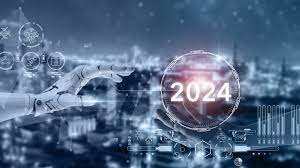The construction industry is experiencing a profound shift as it navigates the digital frontier. Advancements in technology are revolutionizing traditional practices and reshaping the way construction projects are planned, executed, and managed. From artificial intelligence to drones, these transformative technologies are not only enhancing efficiency but also fundamentally changing the landscape of the construction industry.
Emerging Technologies in Construction
AI and Machine Learning
Artificial intelligence (AI) and machine learning algorithms are empowering construction companies to streamline processes and make data-driven decisions. By analyzing vast amounts of data, these technologies can optimize construction schedules, predict potential risks, and improve project outcomes.
Virtual and Augmented Reality
Virtual and augmented reality (VR/AR) technologies are revolutionizing the design and visualization process. Architects, engineers, and clients can now experience virtual walkthroughs of construction projects before they are built, enabling better communication and collaboration and reducing costly errors.
Drones and UAVs
Unmanned aerial vehicles (UAVs) or drones are increasingly being used in construction for site surveys, progress monitoring, and aerial inspections. Drones provide real-time data and aerial imagery, allowing project managers to monitor construction progress, identify potential issues, and improve overall safety on-site.
IoT and Sensors
The Internet of Things (IoT) and sensor technologies are transforming construction sites into smart, connected environments. Sensors embedded in construction equipment, materials, and infrastructure collect real-time data on various parameters such as temperature, humidity, and structural integrity, enabling proactive maintenance and optimization of resources.
Impact on Construction Practices
These transformative technologies are having a profound impact on construction practices, leading to:
Efficiency and Productivity
Automation and optimization of tasks lead to increased efficiency and productivity throughout the construction lifecycle. From project planning to execution, technology streamlines processes, reduces manual labor, and accelerates project timelines.
Safety Enhancements
Enhanced safety measures, enabled by technologies such as drones and IoT sensors, mitigate risks and improve overall safety on construction sites. Real-time monitoring and predictive analytics help identify potential hazards and prevent accidents before they occur.
Cost Savings
By optimizing resource allocation, minimizing waste, and reducing rework, technology-driven solutions result in significant cost savings for construction projects. Accurate estimating and predictive analytics help control budgets and avoid costly overruns.
Enhanced Collaboration
Virtual collaboration platforms and BIM (Building Information Modeling) systems facilitate seamless communication and collaboration among project stakeholders, regardless of their physical location. This fosters better coordination, reduces misunderstandings, and improves project outcomes.
Role of Construction Estimating Companies
Accurate estimating is the cornerstone of successful construction projects, and construction estimating companies play a vital role in this process. These companies leverage technology to:
Importance of Accurate Estimating
Accurate estimating is essential for budgeting, bidding, and project planning. Construction estimating companies employ experienced professionals who use advanced software tools and historical data to provide precise cost estimates for construction projects.
Incorporating Technology into Estimating Services
Construction Takeoff Services
Construction Takeoff Services specialize in providing accurate cost estimates for masonry construction projects. With the integration of technology, such as 3D modeling and digital takeoff software, these services can deliver faster, more accurate estimates, helping contractors make informed decisions and win more bids.
Benefits for Construction Projects
The incorporation of technology into estimating services results in several benefits for construction projects, including improved accuracy, faster turnaround times, and enhanced cost control. Contractors can rely on these estimates to make strategic decisions and optimize project budgets.
The Future of Estimating Services
As technology continues to advance, the future of estimating services looks promising. Some anticipated trends and advancements include:
- Integration of AI and machine learning algorithms for predictive estimating.
- Expansion of virtual and augmented reality applications for immersive estimating experiences.
- Adoption of blockchain technology for transparent and secure project costing and bidding processes.
Case Studies
Real-world examples showcase how companies are leveraging transformative technologies to optimize construction practices and achieve remarkable results.
Challenges and Opportunities
While the adoption of transformative technologies presents numerous opportunities for the construction industry, it also comes with its challenges. Overcoming obstacles such as resistance to change, cybersecurity concerns, and skill gaps requires proactive measures and strategic planning. However, by embracing innovation and investing in training and development, construction companies can position themselves for long-term success in the digital era.
Conclusion
In conclusion, the digital frontier is transforming construction practices at an unprecedented pace. From AI and machine learning to drones and IoT, these transformative technologies are reshaping the industry and driving efficiencies, safety enhancements, and cost savings. Construction estimating companies, including masonry estimating services, play a crucial role in leveraging technology to deliver accurate estimates and optimize project outcomes. As we look to the future, embracing innovation and staying ahead of the curve will be key to thriving in an increasingly digitalized construction landscape.
